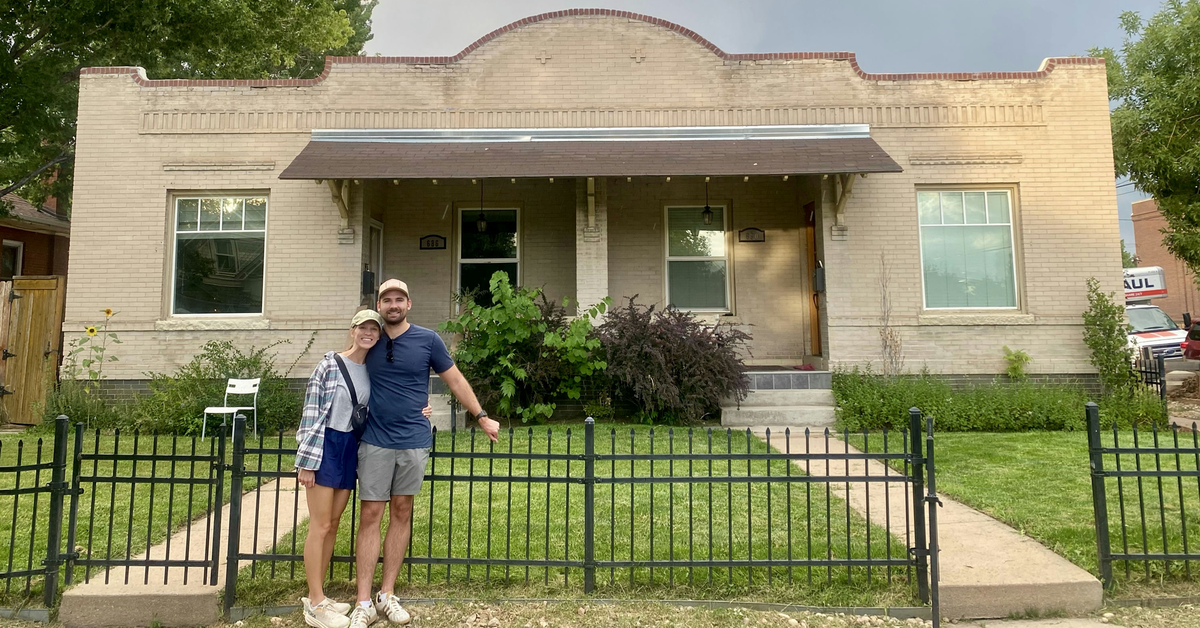I Earned Over $5,800 on My House Fund in the Last Year -- Here's Where I Kept It

Image source: Brooklyn Sprunger
KEY POINTS
- I earned over $5,800 by splitting my house down payment between a high-yield savings account and a certificate of deposit.
- Knowing my timeline helped me choose the right account for each part of my savings.
- Now's a smart time to open a CD and lock in a high rate before the Fed's next meeting on June 17–18.
After seven years in personal finance, I've gotten pretty good at helping other people make the most of their money. But this past year, I got to experience a major money win firsthand -- and it all came down to where I parked my savings.
This month, I'm closing on my first house. And thanks to one simple strategy, my down payment has grown by more than $5,800 in the past year -- just by sitting in the right accounts.
A high-yield savings account helped my money grow fast
For the past two years, I've been keeping my down payment in a high-yield savings account (HYSA) from LendingClub. The rate was far better than the 0.01% you get from a traditional savings account, and it was accessible in case we bought a home sooner than planned.
In the past year alone, that HYSA has earned over $5,000 in interest. That's money I didn't have to work for or manage -- it just showed up while I was waiting for the right house.
Want to put your savings to work too? The LendingClub LevelUp Savings account is where I kept the bulk of my down payment, and it paid off big-time. Click here to open a LendingClub LevelUp Savings account today.
I timed a CD to boost my return even more
Last summer, when rates were sky-high and I had a rough idea of when I'd be buying, I moved $20,000 of my down payment into a LendingClub CD. The rate was higher than my savings account's, and I liked the certainty of knowing I'd get a fixed return with no surprises.
Fast forward 10 months: That CD is maturing this month, and it earned me over $800 -- right on time to cover some of my closing costs and put new carpet in the basement.
Why timing matters
The reason this strategy worked so well is because I knew roughly when I'd need the money. That let me take advantage of both a high-yield savings account and a CD -- each with a different job.
- An HYSA is great when you need flexibility. My timeline wasn't exact, so I kept most of my money here to earn solid interest while still being able to access it quickly if plans changed.
- A CD works best when you know you won't touch the money for a while. Despite not knowing exactly when I'd be ready to buy, I felt confident I wouldn't need it for at least nine to 12 months, so I used a CD to lock in a higher rate and earn even more.
Together, they were the perfect duo. My house fund grew by over $5,800 -- with zero stress or risk.
So if you've got a big expense coming up later this year -- like a wedding, move, or home project -- it's worth asking:
- Do I need all of this cash to be accessible at all times?
- Or could I lock in a portion for six to 14 months to earn more interest?
That one question can help you decide whether an HYSA, a CD, or both are right for you.
Why now is the time to act
The Federal Reserve meets again on June 17-18, and if they decide to cut rates, today's top CD offers could start dropping fast.
That's why I'd open a CD now. Even if you only commit a small part of your savings, you can lock in a high rate and earn hundreds of dollars without lifting a finger.
Ready to let your savings work for you? Open a LendingClub CD here and lock in your rate while it lasts.
Disclaimer: Investing carries risk. This is not financial advice. The above content should not be regarded as an offer, recommendation, or solicitation on acquiring or disposing of any financial products, any associated discussions, comments, or posts by author or other users should not be considered as such either. It is solely for general information purpose only, which does not consider your own investment objectives, financial situations or needs. TTM assumes no responsibility or warranty for the accuracy and completeness of the information, investors should do their own research and may seek professional advice before investing.
Most Discussed
- 1
- 2
- 3
- 4
- 5
- 6
- 7
- 8
- 9
- 10